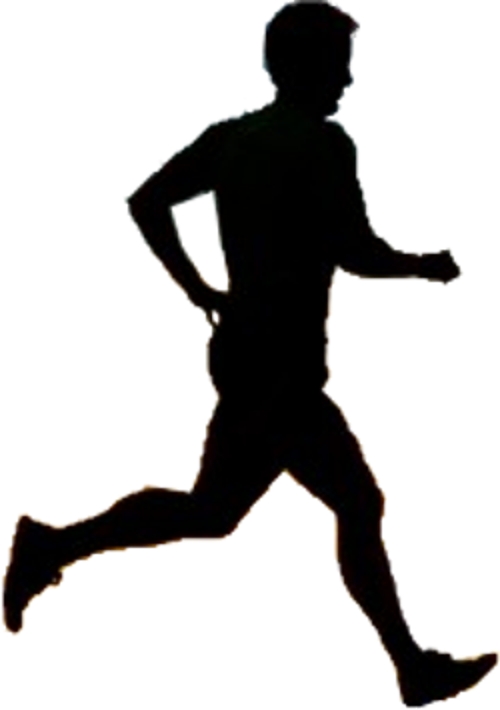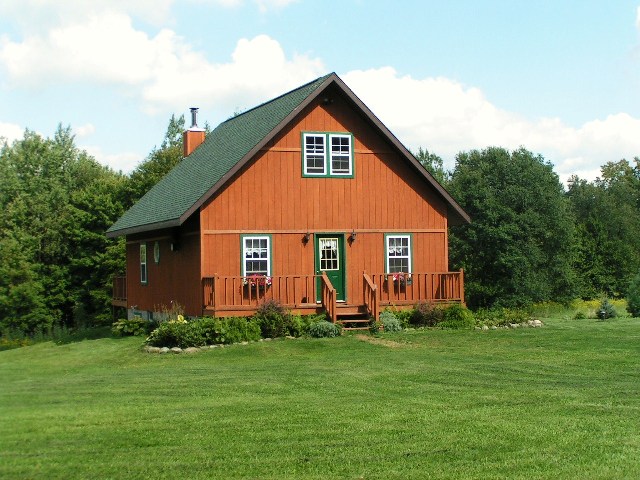
Exercise & Brain Power
by Raquel Akens
AT FIRST glance the title, Exercise and Brain Power, may appear to have an odd couple paired up together. After all, in most minds intelligence is not at all associated with exercise, but with a sedentary life of studying books and doing research in labs. This is most likely because we do not consider that the brain is just like any other organ in the human body. It too greatly benefits from exercise, and needs physical activity to function optimally.
Exercise is one of the eight laws of health, and each law is just as important as the other. Perfect health cannot exist without the keeping of all eight laws. This is because their relationship to one another is symbiotic. Good health depends upon each law working in harmony with the others. Often times the mistake is made of over emphasizing proper nutrition to the neglect of the other seven laws of health. One of those neglected laws is exercise. Therefore we will be sharing a series of articles on the benefits of exercise.

In 1999 there was a study done by the Salk Institute for Biological Studies, where they used mice to determine the effects of exercise (running in this case) upon brain cells.1 It was found that running increased the generation of brain cells in the hippocampus dentate gyrus, which is the part of the brain that controls the functions of memory, learning and spatial coding. In fact the mice that had access to running wheels excelled on memory tests compared to the other mice who did not have access to a running wheel. These findings concur with the results in another study done on lab rats by the Psychobiology and Exercise Research Center, São Paulo, Brazil, in 2011.2 This study went a step further and added a third group of rats that, instead of running, were made to do resistance training or weight training, by tying weights on the rats’ tails while they climbed up and down vertical, little ladders. The groups that performed aerobic training by running on the wheel, and the resistance training showed similar improvements in learning and spatial memory. What was intriguing in the findings was that each exercise accomplished this through a different molecular pathway in the brain. The aerobic group showed to have an increase of a protein called brain-derived neurotrophic factor, which stimulates the production of neurons and strengthens their existence, while the resistance group did not, but instead had an increase of another protein called, insulin-like growth factor, which promotes cell-division, and is involved in neural development and maintenance.
In 2013, the University of British Columbia lead a six month controlled trial that also showed the effects of exercise upon the brain, but this study was done on humans.3 The experiment took 86 women between the ages of 70-80 who had memory complaints. They were divided into three groups. For six months, twice a week, one group was to do Resistance Training which is a specific weight training program whose training stimulus increased over time. Another group was to do Aerobic Training which consisted of outdoor walking where at least 40% of their age specific heart rate was met and which progressed in the first 12 weeks to 70–80% of their age specific heart rate. The last group was used as a control group and they followed the Balance and Tone program which consisted of stretching exercises, range of motion exercises, and balance exercises, with no additional loading, like weights. The three groups were tested in verbal and spatial memory before and after the trial was completed. The results were that the Resistance Training and the Aerobic Training groups improved on the cognitive tests at the completion of the trial, while the Balance and Tone group actually did worse. What was interesting to find, which correlates to the study done in Brazil, was that the Aerobic Training group did better in the verbal memory test than the Resistance Training group. This indicated to the researchers that different kinds of exercises affect different functions of the brain, although the differences between the two were not great.

In considering these interesting findings, let us remember that God was the first to tell us that exercise was vital for our good health. How do we know this? He created man to have an active life. Our Heavenly Father placed Adam in a garden where his work involved physical and mental labor; for he was commanded to dress it and to keep it (Genesis 2:15). Adam exercised all day in the fresh air and sunshine. Therefore man’s ideal job is actually in the outdoors, not in a fancy office located in a skyscraper in some big city, nor in some cubicle or factory, etc. It is true that in our present world we cannot all be farmers, but today it is not just the work that we do that can keep us from exercising, but also the commodities of life. What used to take a good amount of physical work in the past now takes only but a flip of a switch or the pushing down of a button. These conveniences are not without consequence, as we are all well aware. According to the study done by the University of British Columbia mentioned above, it states that: “Cognitive decline is one of the most pressing health care issues of the 21st century. Currently worldwide, one new case of dementia is detected every seven seconds and the number of people affected is projected to be over 80 million by 2040. Thus, the societal value of developing effective intervention strategies cannot be overstated.”
Our minds are one of the greatest gifts that God has given us in creation. Exercise is one of the best means of keeping both our minds and our bodies strong. Praise God for his simple means.
1NCBI. Nat Neurosci. “Running increases cell proliferation and neurogenesis in the adult mouse dentate gyrus.” 1999 March 2. Web. March 11 2014.
2NCBI. Neuroscience. Psychobiology and Exercise Research Center, CEPE, São Paulo, Brazil. “Spatial memory is improved by aerobic and resistance exercise through divergent molecular mechanisms.” 2012 Jan 27. Web. March 11 2014.
3NCBI. PMC. Department of Psychology, University of British Columbia, Vancouver, BC, Canada. “Resistance training promotes cognitive and functional brain plasticity in seniors with probable mild cognitive impairment: A 6-month randomized controlled trial” 2013 Apr 23. Web. March 11 2014.
Why would professed Christian Church buildings have a door for devils? And what doctrine could lead them to such a practice? Find the answers to these questions and more in this article.
Report from the Philippines
Brother Chris Sparks tells some wonderful testimonies from his stay there in the Philippines with Pastor David Sims and Brother Ray Mendiola.
What is Your Picture of a Happy Life? - Part 3
Finding true happiness in Jesus' sermon on the Mount of Blessings.
Gardening - Growing Tomatoes
In this article I will share some of the most important tips I have learnt in growing nutrient rich and flavorsome tomatoes.
Health Corner - Exercise & Brain Power
Have a bad memory? Do you have a hard time formulating words? Find out how one of God's simple remedies can improve your cognitive processes!
Think on These Things - Rightly Dividing the Word of Truth
Brethren, we must realize that there are certain sound principles of reasoning and Bible study ...
Recipe
Raquel's Apple-berry Muesli - A quick recipe for a healthy breakfast!
Seventh Day Home Church Fellowships is an association of Sabbath-keeping groups, which through web & tele-conferencing provides means for study, fellowship, and jointly organized missionary projects.
Website: www.seventhdayhomechurchfellowships.org
Email: admin@seventhdayhomechurchfellowships.org
Seventh Day Home Church Fellowships:
P.O. Box 262, Laconia, NH 03246, U.S.A.
